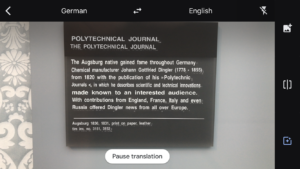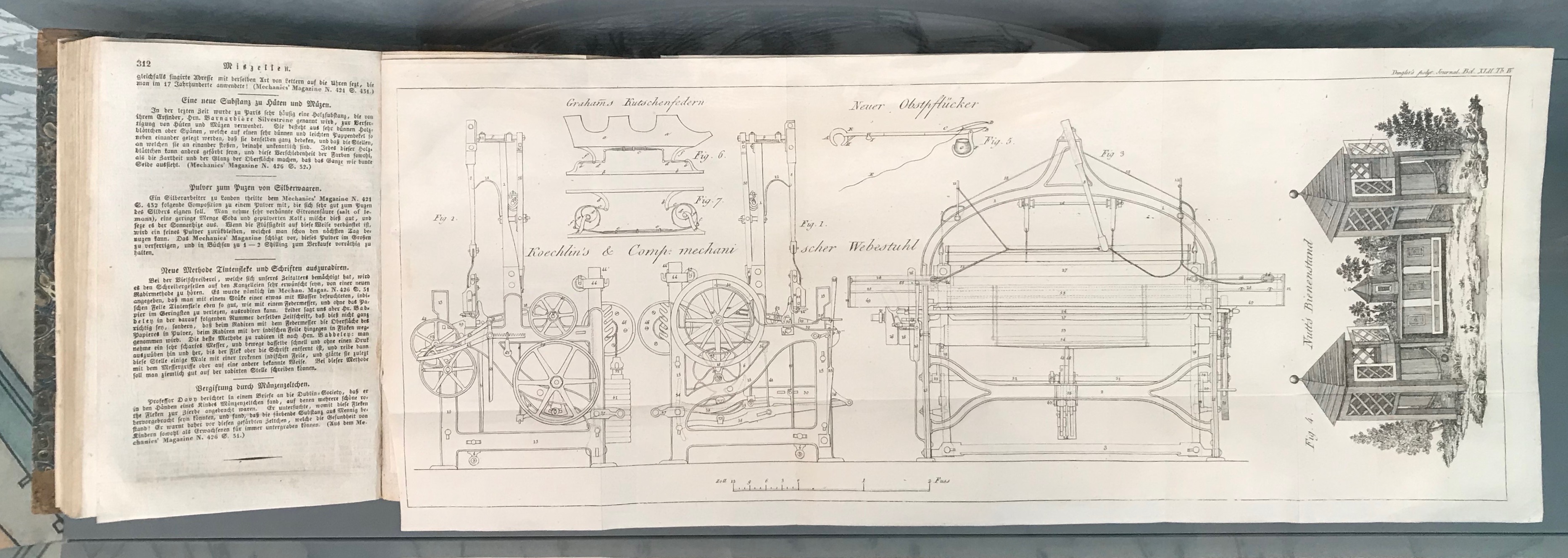In which Sid and Doris see Augsburg’s more recent past.
Avoiding the hotel buffet breakfast for a change, we find a workers’ serve yourself snack bar at the lavishly engineered tram and bus station. Tasty and very economical [the breakfast not the… etc. D].
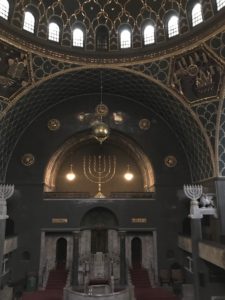 First stop is the large synagogue built in 1914 by the flourishing congregation. There is an exhibition about Judaism which mourns the absence of social equality and marks the destruction of their community. Naturally we can only see into the area where the prayers are led and said from the women’s gallery. There is no mention of Palestine. The Nakbah (what the Palestinians call the events of 1948 and after) may be no Shoah but it is no mitzvah.
First stop is the large synagogue built in 1914 by the flourishing congregation. There is an exhibition about Judaism which mourns the absence of social equality and marks the destruction of their community. Naturally we can only see into the area where the prayers are led and said from the women’s gallery. There is no mention of Palestine. The Nakbah (what the Palestinians call the events of 1948 and after) may be no Shoah but it is no mitzvah.
There are few labels in English so we wander around their Collection of Things feeling rather illiterate. The Thingiest Thing of the Day award goes to this unexplained silver train.
Sadly the MAN diesel engine factory museum is shut for visits which is pretty reasonable in these Covid times. Rudolph Diesel went to engineering school in Augsburg. Firms in the area also make parts for the Airbus 380. That’ll be a long furlough.
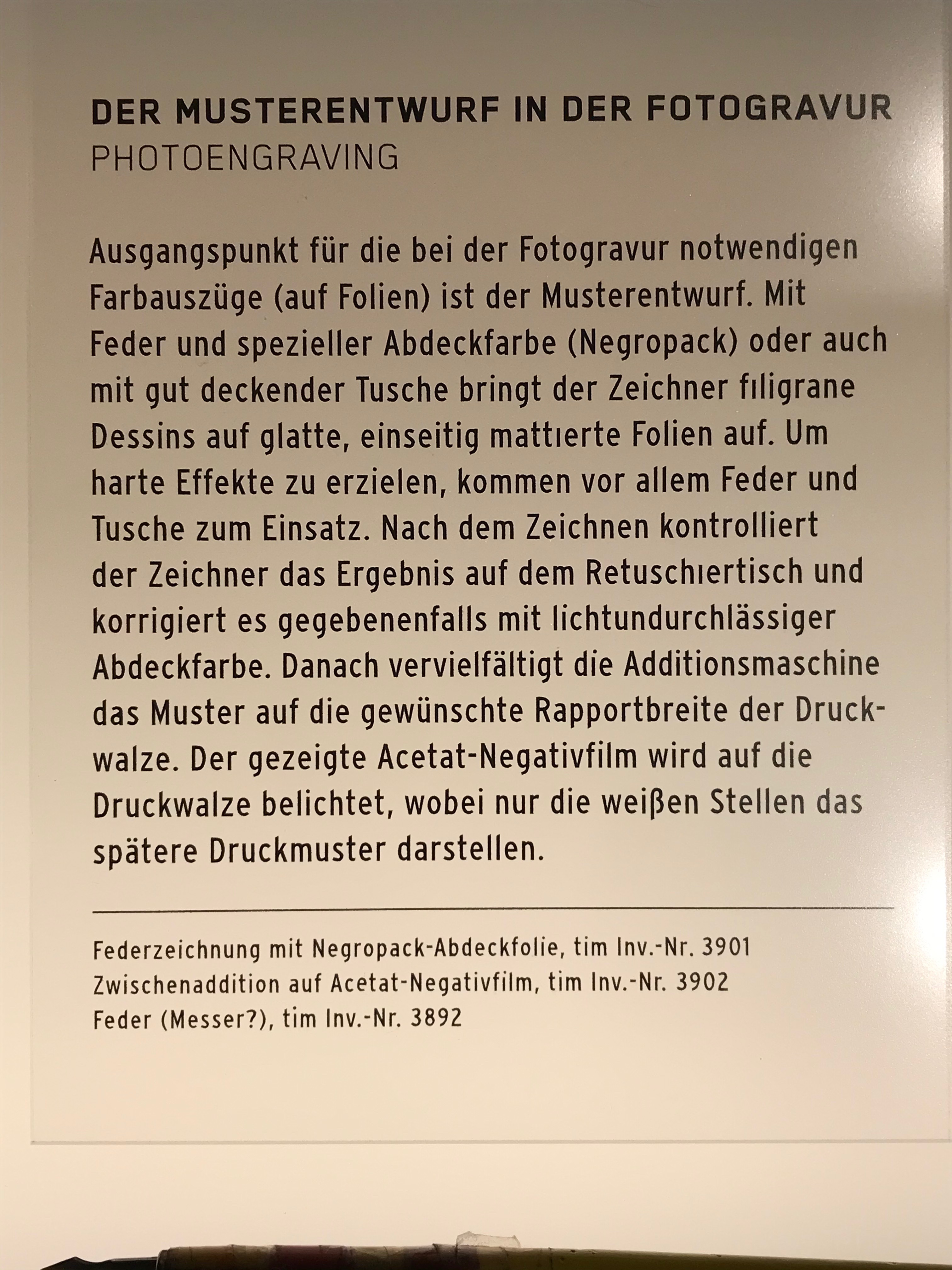 Augsburg was a centre of the textile industry. The Textile and Industry museum is a 25 minute walk and as our route takes us through the bus/tram interchange we try to work out how to buy a tram ticket. It can be done but by the time the tram runs you might just as well walk, so we have missed our go on the public transport. It’s not a big town.
Augsburg was a centre of the textile industry. The Textile and Industry museum is a 25 minute walk and as our route takes us through the bus/tram interchange we try to work out how to buy a tram ticket. It can be done but by the time the tram runs you might just as well walk, so we have missed our go on the public transport. It’s not a big town.
The museum has some very interesting machines, some of which were in use up to 2004, but very little in the way of English captions. The example on the left is pretty typical – the title is translated into English but none of the useful stuff. Still, they had put out a lot of pattern books which make for great viewing. Perhaps we have been spoiled by Cholet and Ghent.
Due to the virus none of the machines was being run and there were no audio guides. Sid considers learning to speak German, he has seen children do it, so how hard can it be? For future visits we are looking to Trip Advisor for hints on which sights have enough English to keep us entertained.
Mr Google does have a whizzy translate function on the phone although it munches up the battery so is not suitable for prolonged viewing. Here it is helping Doris out with a fascinating copy of the Polytechnical Journal, complete with fold-out illustrations.
We also turn down the opportunity to visit the extra exhibition “Amish Quilts Meet Modern Art” because as soon as you have got the concept (“What if Mondrian preferred patchwork to oil paint”) you have already understood everything that the exhibition will convey, apart from, perhaps, a really fine appreciation of just how tricky a 90′ patchwork corner can be to get perfectly flat.
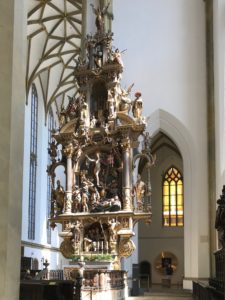 Our final visit needed little explanation. The Gothic Basilica of Saints Afra and Ulrich was founded in 304 when Afra was martyred here. Augsburg is one of several towns to claim to be Germany’s oldest. The basilica is the burial place of some of the Fuggers who have endowed chapels. The statuary gives some idea of what really big santons would be like. Other claims to fame are a real Mozart organ concert in 1777, not just the usual tribute acts.
Our final visit needed little explanation. The Gothic Basilica of Saints Afra and Ulrich was founded in 304 when Afra was martyred here. Augsburg is one of several towns to claim to be Germany’s oldest. The basilica is the burial place of some of the Fuggers who have endowed chapels. The statuary gives some idea of what really big santons would be like. Other claims to fame are a real Mozart organ concert in 1777, not just the usual tribute acts.
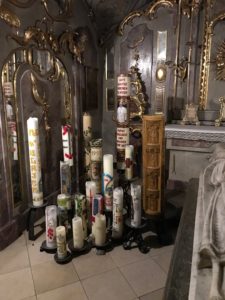 The echoes have died away, but we did find a chapel for Edith Stein and lit a candle, although it looked a bit feeble next to their Call That A Candle This Is A Candle candle collection.
The echoes have died away, but we did find a chapel for Edith Stein and lit a candle, although it looked a bit feeble next to their Call That A Candle This Is A Candle candle collection.
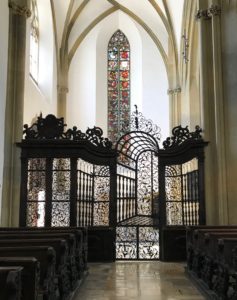 They have also got what is possibly the first set of trompe l’oeuil ironwork gates that Sid and Doris have seen. Yes, this is genuinely a flat, closed gate
They have also got what is possibly the first set of trompe l’oeuil ironwork gates that Sid and Doris have seen. Yes, this is genuinely a flat, closed gate
Sid and Doris are in more than one mind over how to direct the Grand Tour. Buying a better map always soothes the soul. We will pass up the Stuttgart Mercedes Museum having spotted a broader view of transport a couple of hours up the road. And while planes on sticks have been elusive there may be an opportunity to catch up in a rush.
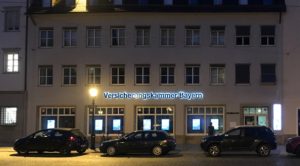 We finish the day watching the Augsburg Cruise along Maxmillianstrasse, a range of pretty/fast/expensive (rarely all three) cars trundling past at a very exact 29kph due to the local police having got wind of it, and musing on the job of the premises manager at Versicherungskammer Bayern… (“We want somewhere cheap but it has to be wide enough to fit the logo on.”)
We finish the day watching the Augsburg Cruise along Maxmillianstrasse, a range of pretty/fast/expensive (rarely all three) cars trundling past at a very exact 29kph due to the local police having got wind of it, and musing on the job of the premises manager at Versicherungskammer Bayern… (“We want somewhere cheap but it has to be wide enough to fit the logo on.”)

